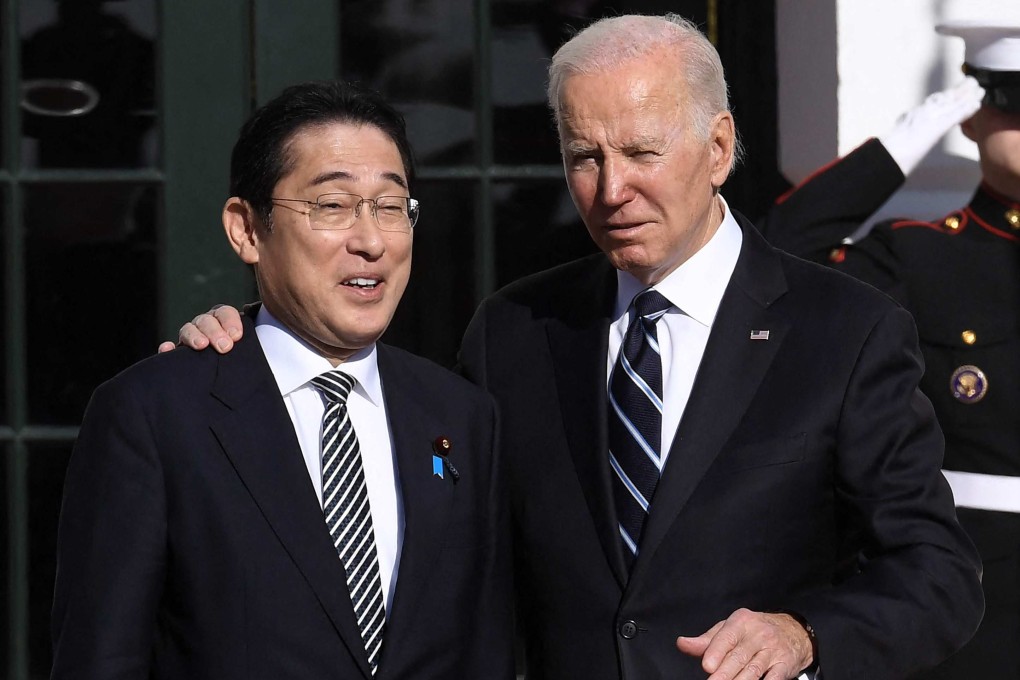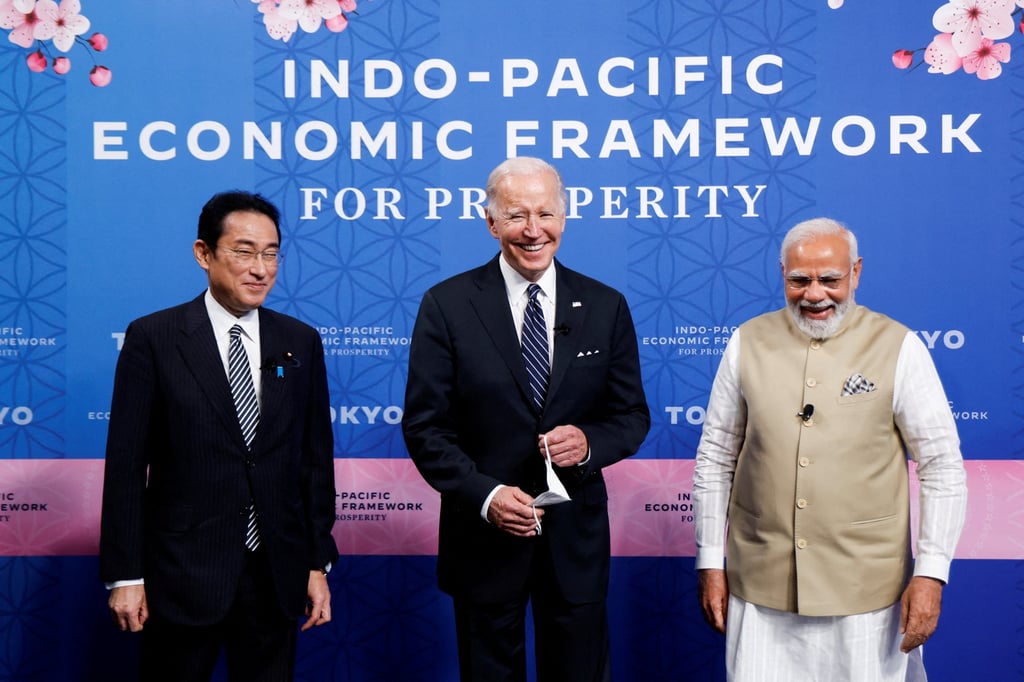Advertisement
Japan really wants the US to join the CPTPP. But ‘politically weak’ Biden isn’t interested
- Washington says it will focus on its own Indo-Pacific Economic Framework instead of the massive multilateral trade agreement that China wants to join
- Japanese PM Fumio Kishida’s repeated calls for the US to reconsider and join the CPTPP make it look like he’s grasping at straws, an analyst said
Reading Time:3 minutes
Why you can trust SCMP
26

Julian Ryallin Tokyo
Japanese Prime Minister Fumio Kishida’s push for the United States to join one of the world’s biggest multilateral trade agreements looks doomed to fail under the “politically weak” President Joe Biden, analysts say, as the focus now shifts to China’s application for membership.
Kishida met Biden in Washington on Friday at the tail-end of a whistle-stop week-long tour of fellow G7 members, with the two leaders agreeing to deepen security ties and cooperate on semiconductor-related exports controls to China.
In a joint news conference after their meeting, Kishida again urged the US to join the Comprehensive and Progressive Agreement for Trans-Pacific Partnership (CPTPP) – the successor to an earlier trade pact torpedoed in 2017 by the US’ withdrawal under Biden’s predecessor Donald Trump.
Advertisement
But White House Press Secretary Karine Jean-Pierre later told reporters “this is not an option we’re exploring” as Washington was focused on its own Indo-Pacific Economic Framework (IPEF) instead.

The IPEF is not a free-trade arrangement but instead aims to deliver fair and resilient trade rules in sectors including digital trade, labour and the environment, as well as promoting resilience in supply chains, encouraging the development of infrastructure and green technology, and harmonising tax and anti-corruption efforts.
Advertisement
Advertisement
Select Voice
Choose your listening speed
Get through articles 2x faster
1.25x
250 WPM
Slow
Average
Fast
1.25x